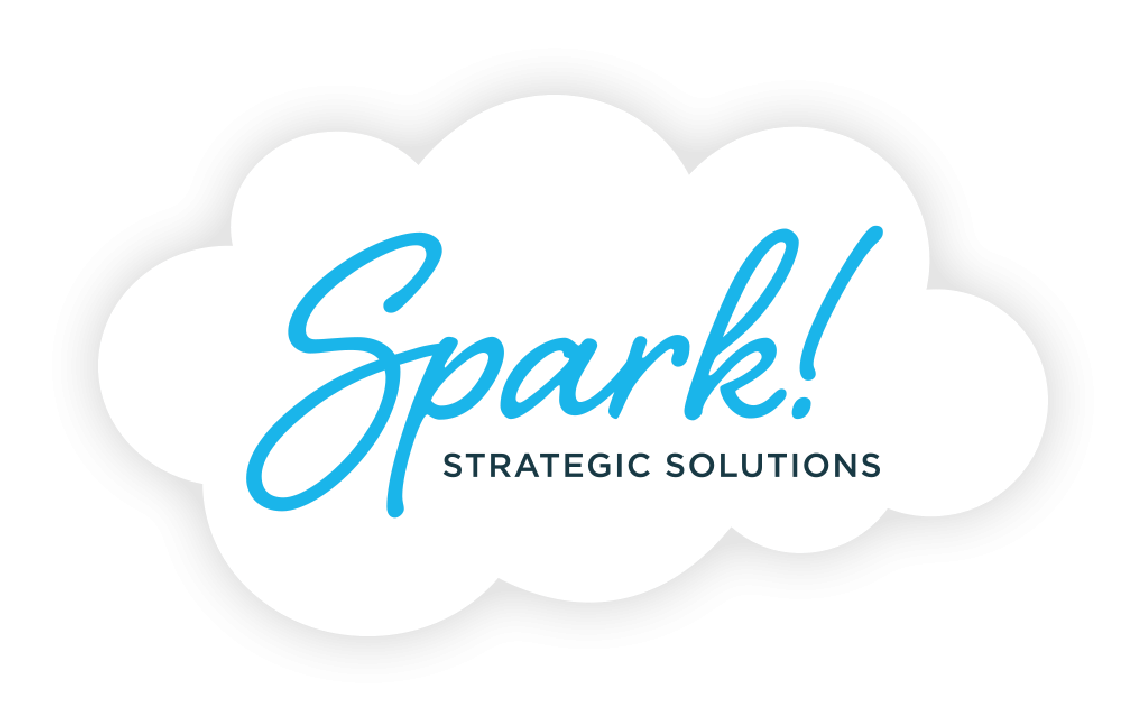
When you think of Superman, do you think of super strength, the power of flight, and heroic deeds? Or do you think of those times when Clark Kent was brought to his knees by kryptonite?
Personally, I think about all the good he’s done for his community.
We all have our own unique form of kryptonite—the stuff that gets us down. AND we all have our own unique strengths—our superpowers.
The strength-based approach
In our work at Spark!, we take a strengths-based approach and develop our own unique superpowers, and we think it gives us an extra edge.
Gallup uses the formula Talent x Investment = Strength1 to guide the development of customers’ strengths. Under this system, Talent is defined as “a natural way of thinking, feeling or behaving.”
Simply put, your talents are the things you are naturally good at just by showing up. Talents are the qualities that make you who you are and set you apart from your peers—and them from you!
Through investment, “time spent practicing, developing your skills and building your knowledge base,” Gallup’s formula promises to turn a talent into a strength: “the ability to consistently provide near-perfect performance.” Sounds kind of like superpowers, right?
Transforming talents into strengths
This equation seems pretty sound to us. We all have natural talents, and through practice and education we can develop our natural talents into incredible strengths.
Maybe your superpower is detailed analysis, or maybe empathy, activating people and remaining positive in dark times.
Gallup’s data shows that people who get to use their superpowers every day are six times more likely to be engaged in their jobs and three times more likely to report having an excellent quality of life. I bet if you had superpowers you’d want to use them as often as possible, so it makes sense that people who are good at—and enjoy—what they’re doing will be more engaged and happy.
Developing your superpower
When you practice and nurture a weakness, you turn a low-point into mediocrity. When you nurture your talents, you develop a superpower. Rather than focusing on and improving your weaknesses—or kryptonite—we suggest nurturing your talents and turning them into strengths.
The data is on our side, too. Gallup found strengths-based development leads to 7%-23% higher employee engagement, 10%-19% increased sales, 8%-18% increased performance, and 14%-29% increased profit.
The benefits are clear. By practicing a strengths-based approach in their organizations, leaders cultivate a happier, more productive workplace culture that will not only attract and retain staff in these uncertain times, but generate new business opportunities.
Personally, I think about all the good he’s done for his community.
We all have our own unique form of kryptonite—the stuff that gets us down. AND we all have our own unique strengths—our superpowers.
The strength-based approach
In our work at Spark!, we take a strengths-based approach and develop our own unique superpowers, and we think it gives us an extra edge.
Gallup uses the formula Talent x Investment = Strength1 to guide the development of customers’ strengths. Under this system, Talent is defined as “a natural way of thinking, feeling or behaving.”
Simply put, your talents are the things you are naturally good at just by showing up. Talents are the qualities that make you who you are and set you apart from your peers—and them from you!
Through investment, “time spent practicing, developing your skills and building your knowledge base,” Gallup’s formula promises to turn a talent into a strength: “the ability to consistently provide near-perfect performance.” Sounds kind of like superpowers, right?
Transforming talents into strengths
This equation seems pretty sound to us. We all have natural talents, and through practice and education we can develop our natural talents into incredible strengths.
Maybe your superpower is detailed analysis, or maybe empathy, activating people and remaining positive in dark times.
Gallup’s data shows that people who get to use their superpowers every day are six times more likely to be engaged in their jobs and three times more likely to report having an excellent quality of life. I bet if you had superpowers you’d want to use them as often as possible, so it makes sense that people who are good at—and enjoy—what they’re doing will be more engaged and happy.
Developing your superpower
When you practice and nurture a weakness, you turn a low-point into mediocrity. When you nurture your talents, you develop a superpower. Rather than focusing on and improving your weaknesses—or kryptonite—we suggest nurturing your talents and turning them into strengths.
The data is on our side, too. Gallup found strengths-based development leads to 7%-23% higher employee engagement, 10%-19% increased sales, 8%-18% increased performance, and 14%-29% increased profit.
The benefits are clear. By practicing a strengths-based approach in their organizations, leaders cultivate a happier, more productive workplace culture that will not only attract and retain staff in these uncertain times, but generate new business opportunities.


